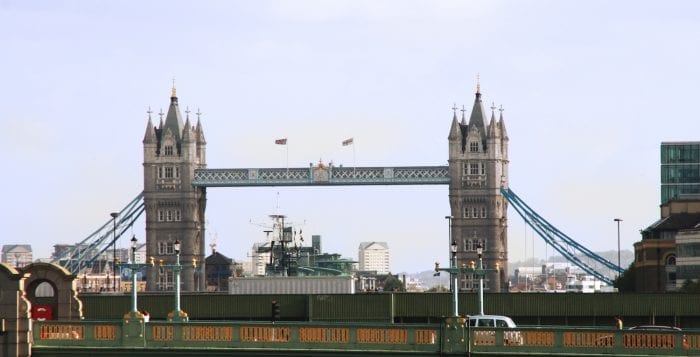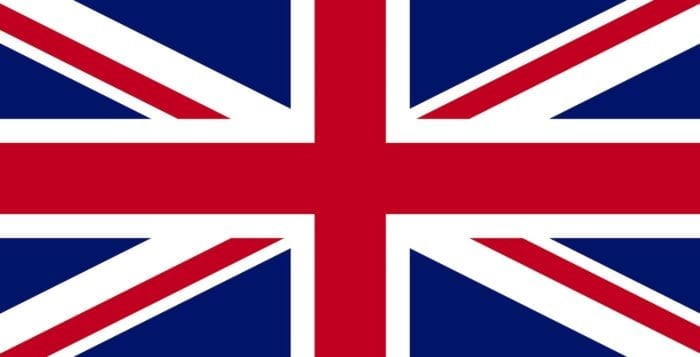Part 3 of 3
By John Broven
When I started this series in March 2019, I wanted to give U.S. readers a Brit’s inside view on Brexit. The term has now become such common currency over here, rather like the Latin phrase “quid pro quo,” that all I need explain is that Brexit refers to Britain exiting the European Union, which it duly did Jan. 31 of this year. On the same date the U.S. Senate rejected further witnesses in the impeachment trial of President Donald Trump (R). It was hardly a red-letter day for western politics.

After publication of the first two articles, I was approached by residents of all age groups at the Stony Brook railroad station, in a deli, at a mall, in a coffee shop, at a party, even at an outdoor art show. Everyone expressed an intrigued interest in Brexit and, it’s fair to say, concern for my English home country. What on earth was going on? Why indulge in such potential self-harm?
When I left you with my June article, the United Kingdom and EU had agreed on another revised exit date, Oct. 31, but with no parliamentary majority the way forward was still far from clear. “Will there be a general election, second referendum, another EU extension or a hard no deal?” I asked.
It came to pass there was a general election Dec. 12 and a further EU extension to Jan. 31, with no second referendum or precipitous hard deal (to date). With the U.K.’s withdrawal from the EU, what happened in the interim?
A third prime minister in three years
For a start, on July 24, Boris Johnson achieved the prize he had wanted from his days as a privileged aristocratic youth at Eton College and Oxford University: the prime ministership of the U.K. After being elected as leader of the Conservative Party (also known as the Tories), he took over from the hapless Theresa May (C) who was unable to deliver on her promise to leave the EU after three years in the hot seat.
Brexit had thus claimed another victim, making Johnson the third prime minster since David Cameron (C) fell on his sword after a dismal and inept Vote Remain campaign during the June 2016 referendum.
Without a working majority, Johnson was confronted by a parliament determined to ensure that if Brexit happened there would be no hard deal. The new prime minister even tried, unsuccessfully, to suspend parliament for five weeks in an effort to stifle debate and ram through the withdrawal agreement by Oct. 31. Queen Elizabeth II was inadvertently embroiled when she dutifully signed the prorogation request of Johnson, who made the flimsy pretense of needing time to prepare for the Queen’s Speech, but the U.K. Supreme Court ruled otherwise. I suspect Her Majesty was not amused.
There was clearly a power battle being fought between parliament and the prime minister, reminiscent of the current war of attrition between Congress and Trump.
The generally pro-Brexit Tory Party, with its band of rabid hardliners, was armed with the 52-48 percent Voter Leave victory of the 2016 referendum. Amid calls from the Brexiters for “democracy” to be respected and with a definite all-round war weariness in the nation, it was clearly going to be difficult for the main opposition parties — Labour, Liberal Democrats, Scottish National Party and the Greens — to overturn “the will of the people.”
At one time, the charismatic speaker of the House of Commons, John Burcow, even invoked an arcane 1604 parliamentary principle to stifle a government motion. (Think about it, that’s 16 years before the Mayflower landed on our shores.) However, the opposition could not find agreement among themselves for a unified approach, even with voting support from 21 Tory rebels. This rump included former Chancellor of Exchequer Philip Hammond, Father of the House Ken Clarke and Sir Winston Churchill’s grandson, Nicholas Soames. Incredibly these respected establishment figures were thrown out of the Tory Party in petulant retribution. You see what I mean about parliamentary drama.
With time running out, the EU begrudgingly extended the Oct. 31 deadline to Jan. 31 after a last-minute fudged agreement with Johnson over the vexatious Irish border backstop question.
December general election
Parliament was still in deadlock, but eventually a general election was called for Dec. 12. Campaigning on a resonating “Get Brexit done” ticket, Johnson won a huge working majority of 80 seats to break the parliamentary impasse. His Conservative Party brushed aside the Labour Party and Liberal Democrats, also Nigel Farage’s Brexit Party. Labour, in its worst general election result since 1935, ignominiously saw the demolition of its “red wall” in the industrial north of England, the traditional home of socialism. The Lib-Dems, under Jo Swinson, went all out with a remain message. Yet this bright young leader couldn’t articulate on the stump the benefits of staying in Europe and she even lost her own parliamentary seat.
The main opposition winners were the Scottish Nationalist Party, under Nicola Sturgeon, which swept Scotland. Watch out for a possible future referendum for Scotland to leave the U.K. and become a member of the EU.
Richard Tapp, of Burgess Hill, West Sussex, added in an email, “Besides the Scottish Nationalists, the pro-EU parties in Northern Ireland also did well, at the expense of the pro-Brexit Democratic Unionist Party whose leader in Westminster lost his seat to the nationalists of Sinn Fein who campaign for a united Ireland — and so remain in the EU.”
Johnson had targeted the disaffected, forgotten part of the nation — the provincial middle class as well as the working class — with a Trump-like populist message, just as the new prime minister had done beforehand with the referendum. The general election was a damning indictment of Jeremy Corbyn’s leadership of the Labour Party, both for his far-left policies and his “sit on the fence” approach to Brexit.
Interestingly, there are concerns in the U.S. about the Democratic Party following the Labour/Corbyn route to self-destruction in the next election with a progressive socialist agenda. James Carville, President Bill Clinton’s (D) 1992 election-winning strategist, was particularly animated on the subject in the Financial Times and on “Morning Joe,” referring to the unelectable Corbyn by name.
Brexit is done
And so, with no obstacles in his way, Johnson “got it done” by signing a withdrawal agreement with the EU, meaning Britain officially left the union at the end of January after almost a half-century of membership. Brexit is now fully owned and controlled by the prime minister and his Conservative Party, with the background help of Dominic Cummings, the architect of the Vote Leave campaign’s victory in 2016.
The coverage on BBC World News in Brussels revealed genuine European regret at the loss of Britain as a vital contributing member to the EU, including politicians from Poland and Sweden. Yet the expected party atmosphere in the U.K. didn’t materialize because the country was still split right down the middle — and it was raining on Farage’s celebration parade outside the Houses of Parliament. Financial Times columnist Simon Kuper had a perverse explanation for the low-keyed reaction: “On Jan. 31, many Brexiters spent their ultimate moment of triumph attacking elitist traitors instead of celebrating.” This revenge, he said, “is so much of the point of populism.”
Those Brexit voters expecting a brand-new dawn, with a return to the glory days of the British Empire free of the EU yoke, will have to wait until at least Dec. 31 this year for all kinds of trade, security and legal negotiations to be agreed before the cord is cut.
During this transition period the U.K. will continue in the EU’s custom union and single market, while still complying with EU rules (but without any more say in the lawmaking process in the European Parliament). Johnson has indicated there will be no extension, leading to the nightmare scenario of a possible no deal commencing Jan. 1, 2021. It will not be an easy negotiating ride.
I’m still of the view that a people’s referendum should never have been considered by Cameron on such a critical and complex matter, which will affect generations to come. His irresponsible bet was compounded by the Brexiters never explaining the downsides — and dangers — of leaving Europe, including diminished influence on the world stage. Already China is waiting in the wings.
Michael Hanna, of Hassocks, West Sussex, echoed my thoughts in an email on the night of Jan. 31: “In about two hours time Boris and his Gang will tear us out of the European Union on the say so of just 17.4 million, a mere 37 percent of the electorate. This is politically the saddest day of my life. For the last 47 years we have been members of the great European family of nations to which we should naturally belong. This has given us huge benefits which the Tory government is knowingly throwing away.”
With thanks for their on-the-spot observations to my British friends Roger Armstrong, Chris Bentley, Mike Hanna, Martin Hawkins, John Ridley and Richard Tapp.
John Broven, a member of the TBR News Media editorial team, is an English-born resident of East Setauket, who immigrated to the United States in 1995. He has written three award-winning (American) music history books and is currently editing the first book on New York blues.








